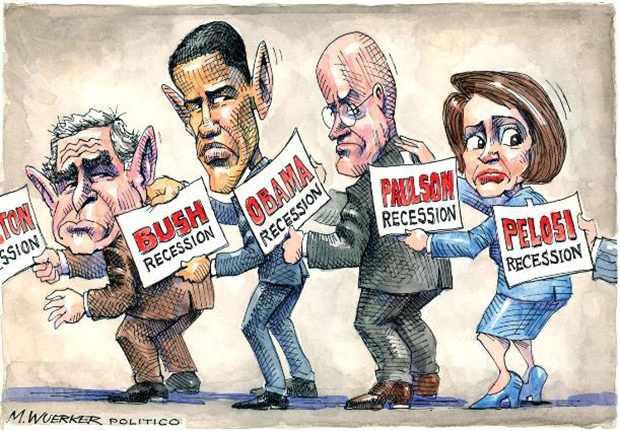Of all the great political buzzwords (and there are many), “bipartisanship” might be one of the best ones. In some respects, it’s completely laughable. When you hear someone say it, you know it doesn’t really mean very much and can’t get completely accomplished (at least in the way anyone conceptualizes it). It’s kind of like (in a small way) when people leave work at 2pm and say they’ll “be online later from home.” You know what the intent is, you know what the ideal would look like, and you know absolutely none of that is going to happen.
So here’s a cool new study from Stanford: no one really wants bipartisanship anyway. Here’s an essential summary:
Drawing on prior research, Malhotra’s team argues that the public is far more interested in outcome than in process. Americans are turned off by the “dogmatic, divisive, and uncivil style of ‘debate’” in which members of Congress routinely engage, according to previous research by Morris Fiorina and Samuel Abrams. But ironically, observing such conflict tends to make individuals cling fast to their partisan identities. “In their roles as spectators of policymaking, citizens may be inclined to root for their team,” Malhotra and his colleagues write. And like the most devoted sports fans, they not only derive a strong sense of themselves and their community from cheering on the home team, but they also rejoice in seeing their rivals lose.
So basically, the sheer idea of working together towards a common goal can often make people want to align with their sides/interests even more. That’s kind of ass backwards in many ways, right?
Think about this in a work context too: silos. There are often many different departments that need to talk to each other — things would be more effective if they did — and they don’t talk to each other. (At most places, it’s actually gotten to the point where people are like, “Well, nothing we can do about it!”) But this research has repercussions there: often, when you need two sides to work together, everyone ultimately defaults to their team/their side in the clashes that typically follow. Part of that is a simple “protect your neck” mechanism — unless it’s a major issue you feel really confident about, you’re not going to stick your neck out against your team and value the other team — and part of it aligns with this research. To wit:
In the first study, the researchers presented competing proposals to cut NASA spending — one Democratic and one Republican — and then randomly assigned an outcome. One was closer to the Democratic proposal, another was closer to the Republican, and the third case was exactly in the middle — a perfect bipartisan compromise. The respondents had to reveal whether they strongly favored, somewhat favored, somewhat opposed, or strongly opposed the new NASA budget. They were also asked to evaluate how “bipartisan” they thought the negotiated NASA budget was. The researchers characterized the outcomes as the respondent’s “own party wins,” the “opposing party wins,” or it was a “bipartisan split.”
Not surprisingly, the compromise budget was deemed by all respondents to be significantly more “bipartisan” than the other two. Yet almost no one favored that outcome over a “win” by his or her own party. Interestingly, respondents rated their own party’s budget victory as more “bipartisan” than if the other party’s budget prevailed.
This is the same way work projects can tend to fall apart — just different camps and in-group/out-group dynamics. I talked about that a little bit here as well.
I often do think it’s kind of hysterical (in the funny way) how human evolution essentially points us to work together / be social (that’s how we survived in the very early going), but … people are almost incapable of working in a group if there’s even a slight difference in viewpoint on the other side. This might be one reason why: everything is ultimately individual, even if it’s construed as being done in a team — so we need to protect our own stuff.
